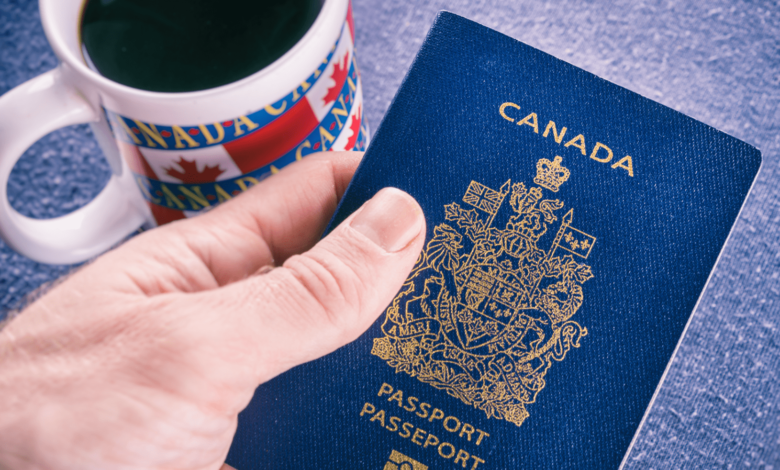A Comprehensive Guide to Canadian Work Visa Eligibility Criteria

Canada is a popular destination for workers from around the world, offering a strong economy and a high standard of living. However, obtaining a Canadian work visa can be a complex and confusing process, and it’s important to understand the eligibility criteria before you begin. That’s why we’ve created this comprehensive guide to Canadian work visa eligibility criteria, to help you navigate the process with confidence.
Understanding the eligibility criteria for a Canadian work visa is crucial, as it will determine whether you are able to work in the country. If you don’t meet the criteria, your application could be rejected, and you could face a delay in starting your new job. By understanding the requirements ahead of time, you can avoid these potential issues and ensure a smooth and successful application process.
In this comprehensive guide, we will provide you with a detailed overview of the eligibility criteria for Canadian work visas. From education requirements to language proficiency, we’ll cover everything you need to know to ensure your application is successful. Whether you’re a seasoned professional or just starting out, this guide will provide you with the information you need to achieve your goal of working in Canada. So, let’s get started!.
Education Requirements:
One of the key eligibility criteria for a Canadian work visa is the level of education required for the job you’re applying for. Depending on the type of work you’ll be doing in Canada, you may need to have a certain level of education to be considered for a visa.
Explanation of the education level required for certain jobs:
The education level required for a Canadian work visa will depend on the type of work you’ll be doing. For some jobs, a high school diploma or equivalent may be sufficient, while for others, a bachelor’s degree or higher may be required. It’s important to research the requirements for your specific job before you begin the visa application process.
Explanation of recognized educational institutions in Canada:
In Canada, there are many recognized educational institutions that offer degrees and other qualifications. When applying for a Canadian work visa, you’ll need to provide proof of your education, such as a diploma or transcript, from a recognized institution. To ensure that your education is recognized in Canada, it’s best to research the institutions that are recognized by the government before enrolling in any programs.
Discussion of equivalency assessments for foreign degrees:
If you have a degree from a foreign institution, you may need to have it assessed for equivalency in Canada. This process will determine whether your foreign degree is equivalent to a Canadian degree and will help to ensure that your education is recognized by Canadian employers. The assessment process can be complex, so it’s important to research the requirements and seek professional assistance if necessary.
Language Proficiency:
Another important eligibility criterion for a Canadian work visa is language proficiency. Depending on the type of work you’ll be doing in Canada, you may need to demonstrate proficiency in one or more of Canada’s official languages, English and French.
Explanation of language requirements for certain jobs:
The language requirements for a Canadian work visa will vary depending on the type of work you’ll be doing. Some jobs may require proficiency in English or French, while others may require proficiency in both languages. It’s important to research the language requirements for your specific job before you begin the visa application process.
Explanation of recognized language proficiency tests:
There are several recognized language proficiency tests that can be used to demonstrate language proficiency for a Canadian work visa, including the International English Language Testing System (IELTS), the Canadian English Language Proficiency Index Program (CELPIP), and the Test d’Évaluation de Français (TEF). It’s important to research the requirements for your specific job and choose a test that is recognized and meets the requirements.
Discussion of exemptions for language requirements:
In some cases, you may be exempt from language proficiency requirements if you have lived and worked in Canada for a certain period of time, or if you have a degree from a Canadian institution. It’s important to research the exemptions for your specific situation and to seek professional assistance if necessary.
Work Experience:
Work experience is another important factor in determining eligibility for a Canadian work visa. Depending on the type of work you’ll be doing in Canada, you may need to demonstrate a certain level of relevant work experience to be considered for a visa.
Explanation of the type of work experience required for certain jobs:
The type of work experience required for a Canadian work visa will vary depending on the type of work you’ll be doing. Some jobs may require several years of experience in a related field, while others may require less. It’s important to research the work experience requirements for your specific job before you begin the visa application process.
Discussion of the relevance of work experience to the Canadian labor market:
Work experience is relevant to the Canadian labor market because it demonstrates your skills and abilities, and shows that you have a track record of success in your field. This information is important to Canadian employers, who want to ensure that they are hiring workers who are capable and qualified to do the job.
Explanation of how to prove work experience:
To prove your work experience, you’ll need to provide documentation, such as a resume or CV, that lists your work history, including the dates of employment, your job title, and a description of your responsibilities and achievements. You may also need to provide reference letters from previous employers or other documentation that supports your work experience.
Health and Character Requirements:
In addition to education and work experience, health and character are also important factors in determining eligibility for a Canadian work visa.
Explanation of health requirements for a Canadian work visa:
To be eligible for a Canadian work visa, you’ll need to meet certain health requirements. This may include a medical exam and proof of required vaccinations. The specific health requirements will depend on the type of work you’ll be doing and the length of your stay in Canada.
Discussion of medical exams and vaccinations:
A medical exam is a requirement for some Canadian work visas and is designed to ensure that you are in good health and do not pose a risk to public health in Canada. The exam will typically include a physical examination, laboratory tests, and a review of your medical history. Required vaccinations will depend on your specific circumstances, but may include vaccines for diseases such as hepatitis B, influenza, and others.
Explanation of character requirements and police clearances:
To be eligible for a Canadian work visa, you’ll also need to meet certain character requirements. This may include a police clearance, which is a document that confirms that you do not have a criminal record. The character requirements will depend on the type of work you’ll be doing and the length of your stay in Canada.
Status in Canada:
When applying for a Canadian work visa, it’s important to understand the difference between temporary and permanent residency status and the eligibility criteria for each.
Explanation of the difference between temporary and permanent residency status:
Temporary residency status allows you to work in Canada for a limited period of time, while permanent residency status allows you to live and work in Canada on a permanent basis. The type of status you are eligible for will depend on your specific circumstances, including your education, work experience, and other factors.
Discussion of the eligibility criteria for permanent residency:
To be eligible for permanent residency in Canada, you’ll typically need to meet certain criteria, such as a certain level of education, work experience, and language proficiency. You’ll also need to pass a medical exam and a security clearance, and demonstrate that you have enough financial resources to support yourself and any dependents.
Explanation of the process for transitioning from a temporary to a permanent visa:
The process for transitioning from a temporary to a permanent visa will depend on the specific circumstances but may include applying for permanent residency through a program such as the Canadian Experience Class, or through the Express Entry system. It’s important to research the requirements and seek professional assistance if necessary, as the process can be complex and time-consuming.
Conclusion:
In this comprehensive guide, we’ve covered the key eligibility criteria for a Canadian work visa, including education requirements, language proficiency, work experience, health and character requirements, and status in Canada.
We’ve discussed the importance of understanding the eligibility criteria for a Canadian work visa, and provided detailed information on each of the key criteria. From education requirements to language proficiency and beyond, we’ve covered everything you need to know to ensure your application is successful.
The Canadian work visa application process can be complex and time-consuming, and it’s important to seek professional assistance if necessary. A professional immigration consultant or lawyer can help you navigate the process, ensure that you meet the eligibility criteria, and increase your chances of success.
Final thoughts on the importance of understanding Canadian work visa eligibility criteria:
In conclusion, understanding the eligibility criteria for a Canadian work visa is crucial to ensuring a successful application. By researching the requirements and seeking professional assistance if necessary, you can increase your chances of success and achieve your goal of working in Canada. So, take the time to understand the criteria, and take the first step towards living and working in one of the world’s most vibrant and prosperous countries.




